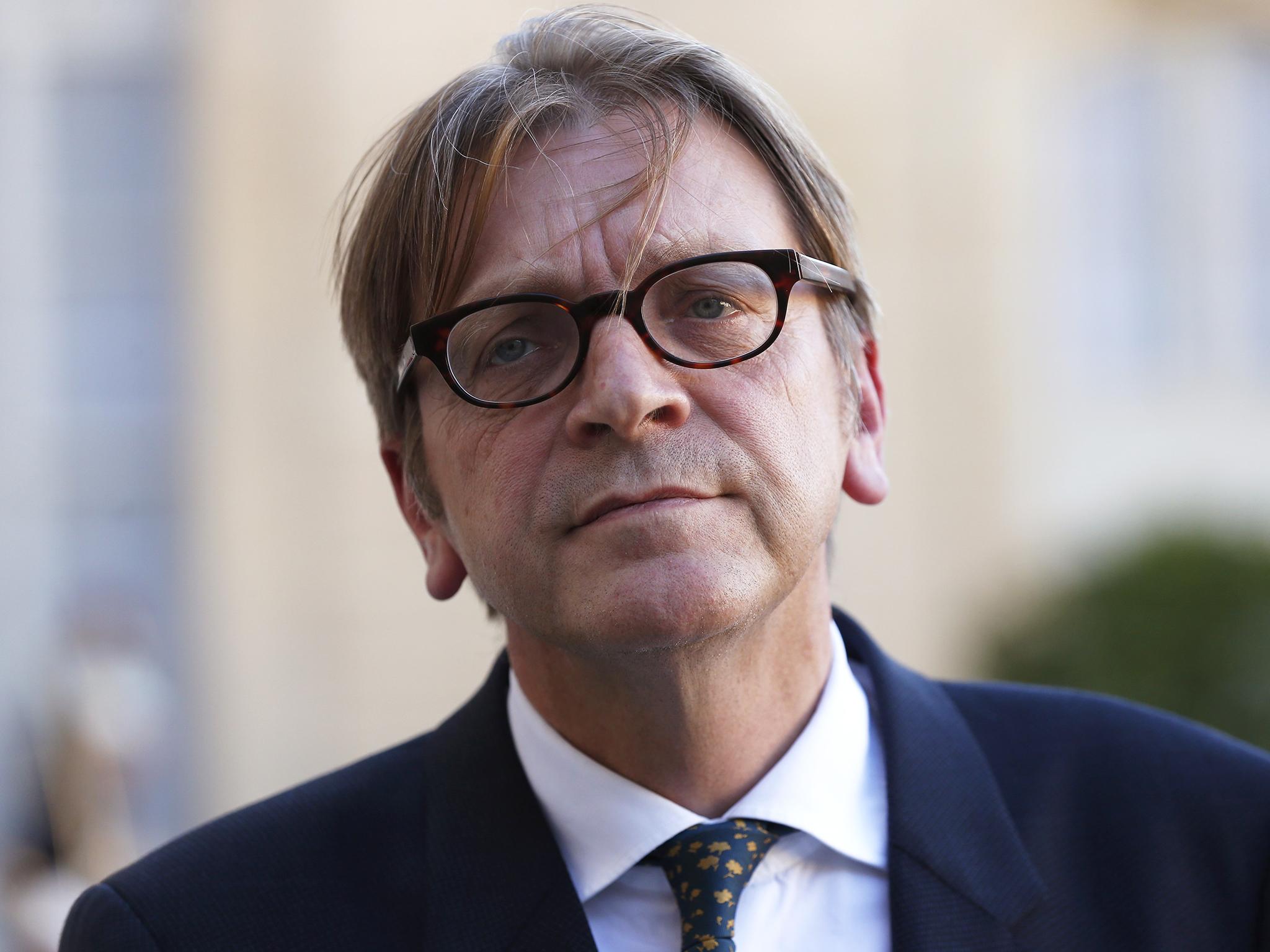EU leaders fight among themselves over Brexit talks and how to proceed
Theresa May has accepted she will not be involved in Brexit talks in Brussels on Thursday - but nor will the bloc's own Parliament

As a summit involving EU heads of state prepared to get underway in Brussels on Thursday, EU leaders were already at odds over how the bloc should proceed with Brexit negotiations.
Theresa May is set to attend the first stage of the Brussels talks but, in a first for the bloc, will then be excluded from a dinner meeting of the other 27 leaders where Brexit will be discussed.
Yet while the European Council - the body comprising the heads of state of all members - is keen to start preparing the EU’s Brexit negotiating position, news of the informal dinner has sparked anger among representatives of the bloc’s other branches.
Guy Verhofstadt, the European Parliament’s chosen lead for talks over Britain’s exit, attacked the Council for unilaterally pushing ahead with the talks.
Speaking in a plenary meeting on Wednesday, the former Belgian Prime Minister accused heads of state of trying to sideline Parliament’s role in Brexit, and even threatened to launch “parallel negotiations” with Britain.
Mr Verhofstadt urged the Council to involve Parliament “from day one”, since the lawmaking body will have to approve the arrangements before any deal is confirmed.
“I think you are still living in the 20th Century, before the 1970s,” he said. “What they are proposing is simply to say we go forward with the Brexit negotiations but without Parliament.
“Do you want us to open up separate negotiations with the British authorities? Is that what you want? If that’s what the heads of state want, we are going to do it. Parallel negotiations. I don’t want it, but apparently the Council wants it.
“Maybe I can give you a famous phrase of Lyndon B Johnson. He said once: ‘Better to have him inside the tent pissing out than outside the tent pissing in.’ Maybe you can relay that to the Council.”
Mr Verhofstadt leads one of the largest groups in the Parliament in favour of increased integration within the EU, and his appointment as the body’s chief Brexit negotiator was described by Nigel Farage as “a declaration of war”.
Earlier, the Belgian criticised plans for the European Council’s last meeting of 2016 as “not very convincing”, and called on the body to show true leadership after what he called a “difficult year for the EU”.
He pointed to “the migration crisis, the economic crisis, the Brexit decision, the terrorist attacks and so on”. “So what I hope is that in this last meeting the European Council, while preparing for the New Year in 2017, could have strong conclusions for the way forward with the EU.
“I have to tell you the first draft I have seen was not very convincing. It was very general remarks but no clear plans for the future.”
Despite the split opinion within the EU, Ms May said she was pleased the other 27 EU national leaders will meet without her after the main summit on Thursday.
"I welcome the fact that the other leaders will be meeting to discuss Brexit tonight as we are going to invoke Article 50, trigger the negotiations by the end of March next year," she told reporters.
"It's right that the other leaders prepare for those negotiations as we have been preparing. We will be leaving the EU. We want that to be as smooth and as orderly a process as possible. It's not just in our interests, it's in the interests of the rest of Europe as well."
She did not answer a question on whether she thought it would take up to 10 years for Britain to negotiate a new trade deal with the EU, following the reported comments to that end of the UK’s ambassador to Brussels.
That time scale has been widely cited by European leaders and officials throughout Brexit discussions and is in line with the time taken to negotiate similar far-reaching global trade pacts.
But former Tory minister and prominent Leave campaigner Dominic Raab said the ambassador behind it, Sir Ivan Rogers, was a “gloomy pessimist” whose attitude was partly to blame for David Cameron’s limited negotiations prior to the referendum.
Mr Raab said Sir Ivan was a "scarred" figure, telling BBC Radio Four's Today programme: "He was the diplomat who persuaded David Cameron to dilute his ambitions for the renegotiation, which was one reason the referendum was lost. So, he has been rather scarred, in fairness, by his own pessimistic advice in the past.”
The MP admitted a 10-year period to negotiate a trade deal after Brexit was a possible “very worst case scenario”.
Join our commenting forum
Join thought-provoking conversations, follow other Independent readers and see their replies
Comments